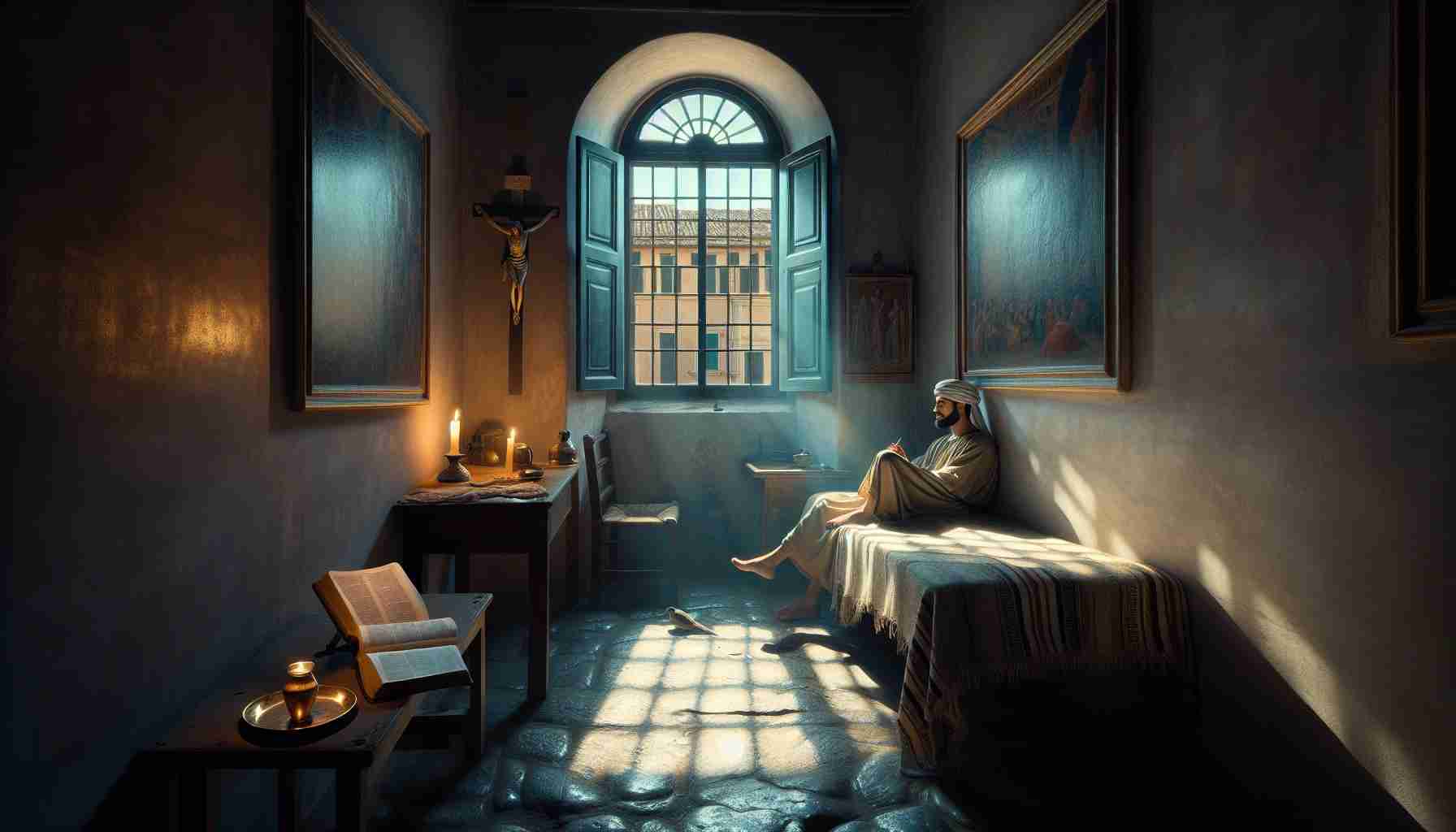

The scent of burning incense wafted through the narrow corridors of Rome’s Casa Professa, where the walls—cool and worn—had heard more whispered prayers than trumpet song. The city outside sweltered with the thirst of a July heatwave, but within the modest, whitewashed cell, silence prevailed. It was July 31st, 1556, and the man lying on the cot—motionless but not forgotten—was Ignatius of Loyola, soldier-turned-saint, founder of the Society of Jesus.
He had once ridden toward glory clad in armor, but conquest through cannon was not the legacy he would leave behind. Now, with thin cloth for a shroud and calloused hands folded in reverent rest, Ignatius’s gaze had already begun to drift beyond Rome, beyond the stoic ceiling beams overhead. His last sigh was not a surrender, but a final push toward the goal he had pursued since God overturned his ambition—“I press on toward the goal for the prize of the upward call of God in Christ Jesus” (Philippians 3:14).
Twenty years earlier, men had mocked him. “One more mystic Spaniard,” they muttered with scorn as Ignatius limped through the Vatican courts—the former soldier still healing from the wounds of both bones and pride, shaped by cannon fire and captivity. But it was during convalescence, with war-striped legs and a heart laid bare, that the Scriptures had ignited something deeper in him than the battlefield ever had. Visions of saints and the radiant Christ replaced fantasies of chivalric honor. Thus began the Spiritual Exercises, not sermons, but a furnace for the soul—weeks of personal retreat and combat with the self.
Now, the Jesuit order, born in the embers of this inner transformation, extended its arms across continents. In Goa, they taught beneath banyan trees. In Ethiopia, they debated ancient rites with Orthodox priests. Across Europe, in cities split by Protestant fire, Jesuits opened schools, defended doctrine, and trained minds for the Kingdom. Where other orders built monasteries, they built minds.
But in this room—this cell no larger than a merchant’s closet—there remained only the founder’s breath, fading into memory. His eyes, dim under the weight of fevers, caught the carved crucifix hanging by the door. It had accompanied him when he had begged on Jerusalem’s streets, when he’d walked barefoot through Paris’s icy alleys to study Latin beneath church bells. Now the cross stood still again, vigilant at the hour of final offering.
Few knew just how torn he had often been—between the rigor of obedience and the ache of compassion. Some Jesuits whispered that he had once wept for three days after overhearing that violence had been justified under his name. Some claimed angels had visited him. Others doubted the tales but never doubted the effect: men followed him as if he’d already entered eternity.
Outside, the bells began to toll the noon Angelus. Within the aged stone walls, Father Polanco, his assistant, fell to his knees and pressed his lips against Ignatius’s wrist. The pulse had faded. Rome would bury another priest. But the world had gained an architect of movements, a storm of missions that would not be silenced.
Years later, beneath the golden dome of the Church of the Gesù—built over the very house where Ignatius had died—pilgrims would line up to place their hands on the slab that had served as his original tomb. They passed beneath intricate stucco angels, their wings caught in rays painted like divine fire. No one would know that Ignatius had never desired such grandeur; he had asked to be buried unmarked, unadorned, among the servants. But such humility could not stay quiet forever.
And beyond the marble, beyond even the relics sealed in silver, his true legacy remained: disciplined hearts refined by silence and service, minds trained to seek God in all things, students taught to think, not merely to believe.
To this day, missionaries in villages, professors in university halls, and weary souls retreating into solitude still open the Spiritual Exercises. There, they find what Ignatius once grasped in pain and awe—that the journey of surrender is a holy march toward a prize, not of position but of presence. A labored pressing-on through temptation, doubt, obedience, and love.
He died without fanfare. No canon roared, no soldiers marched. Only the steady tolling of bells echoing down Roman alleys, and the soft hush of sandals as his brothers in faith drew near, kneeling where he had once written prayers with an aching hand.
The world saw another death.
Heaven welcomed another soldier home.